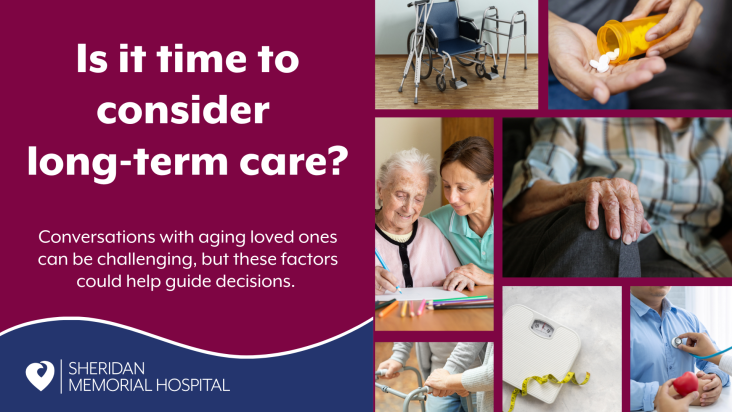By Tonya Carlson – Director, Sheridan Green House Living
One of the hardest conversations to have as a family occurs as our loved ones age. Some aging adults require additional caregiving, which at times can be too much for family members to handle on their own, or at all.
As a result, families often consider long-term care facilities designed to meet a person’s health or personal care needs. But how do you know when it’s time to consider a move?
Safety issues
Are you worried about your loved one — whether a parent or spouse —being home alone? If there is significant concern about an aging individual leaving stove burners on or locking doors at night, it may be time to consider additional support. Falls, burns and other injuries may prompt additional discussions about options, as could fears of a loved one becoming more agitated or restless, even wandering from the home due to dementia.
Hygiene issues
If you or your loved one has started neglecting personal hygiene, it may be a sign those tasks have become increasingly difficult. Whether it’s shaving, showering or toileting, as we age it can become harder to care for ourselves without assistance.
Weight loss
Whether due to dementia, lack of appetite or other causes, a drop in weight without trying may indicate additional health care assistance is needed.
Changes in behavior
According to the National Institute on Aging, loneliness and social isolation are associated with higher risks for health problems such as heart disease, depression and cognitive decline. Before these concerns arise, you may consider options that allow for more frequent interactions with others.
Caregiver burnout
If you or other family member are exhausted from providing the care your loved one needs, it may be time to discuss a sustainable path forward. Considering your options before a caregiver begins resenting a situation or before a loved one feels like a burden can help make the conversations easier.
Aging is part of life, and each of us will age differently. Often, though, adult children or spouses reach a point where they can no longer provide adequate care for an aging loved one. There are many ways to provide additional care, including in-home health services, respite care, assisted living or long-term care facilities. Most such services have case managers or resources to help you determine the best fit for you and your family.
Even if you aren’t in need of additional help yet, learning more about your options can prevent the need for decisions to be made under pressure.
Learn more about Sheridan Green House Living by visiting sheridangreenhouse.org or calling 307.675.1852.

